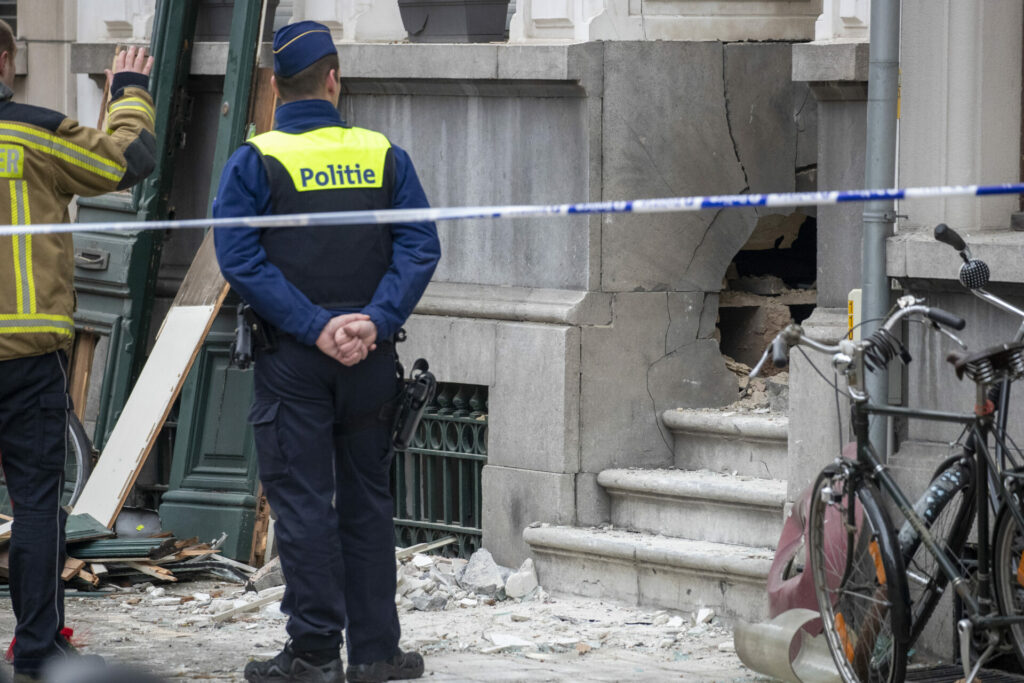Not a belligerent country by nature, Belgium has nonetheless noticed a pronounced rise in violence. Whilst organised crime has called for an organised response, forces of law and order increasingly find themselves the direct target of attacks, rather than indirect victims hurt on the line of duty.
Notwithstanding recent tragedies, police here aren't famed for being heavy-handed and more often are seen around the capital with semi-sporty attire and riding bikes. Heavy weaponry is unusual and you don't cross the street at the sight of the distinctive caps (slightly reminiscent of fortune cookies).
But it isn't just police who have experienced a surge in hostility; others carrying out a public service – whether emergency healthcare teams or those steering public transport – also find themselves subject to a growing number of assaults. And though the circumstances surrounding these gratuitous attacks change, analysts point to young gang violence as an underlying commonality.
Police have noted the anonymity that assailants feel within a group, often feeding a sense of impunity that brings with it more severe aggression than a single perpetrator would commit. Also more likely in a group is the use of weapons, with firearms known to be easily accessible on the black market.
And though stamping out juvenile hooliganism with tougher policing is a strategy that fails to grasp the broader social factors, there is understanding anxiety among law enforcement who have been critical of underfunding and understaffing (the federal police alone is trying to fill 2,000 vacancies). At the same time, forces have felt let down by national bodies and politicians, whilst they themselves pay the price on the front line.
Clearly a lot needs to change but where to start? Let @Orlando_tbt know.
Belgium in Brief is a free daily roundup of the top stories to get you through your coffee break conversations. To receive it straight to your inbox every day, sign up below:
1. Deliver-no-more? Landmark court ruling could see Deliveroo leave Belgium
A Brussels court is poised to issue a definitive ruling on the employment status of Deliveroo couriers in a landmark case that could decide the future of food delivery platforms in Belgium. Read more.
2. Police warns of 'solid increase' in group violence across Belgium
Police forces across Flanders and Brussels are noticing a solid increase in violence in the public space, with youth gangs and organised crime gangs becoming more prevalent both in metropolitan and rural areas. Read more.
3. What to do in Brussels this weekend: 17 - 19 November
This weekend's agenda is jam-packed with activities in Brussels or slightly further afield. Calling all lovers of Irish culture, a concert of ancient Georgian folk songs to a city-wide music festival as well as a fashion and design showcase, here's what's on in Brussels this weekend! Read more.
4. 'Forgot to pay': Four in ten Belgians steal in supermarkets, survey shows
About four in ten Belgians leave the supermarket with at least one item in their shopping cart that has not been paid for, shows a survey by retail security expert Tom Symons after more than 500 million detections over the last five years. Read more.
5. Belgian techno DJ voted best in the world for fourth year in a row
For the fourth year in a row, Belgian DJ Charlotte De Witte (31) has been voted the 'best techno DJ' in the world by the British trade magazine DJ Mag. Read more.
6. Brie mine: Walloons are biggest cheese lovers in Belgium
The fact that cheese is a key part of people's diets in Belgium is hardly a surprise, but nowhere is it more popular than in Wallonia. Read more.
7. Pink Screens: When Brussels becomes the capital of queer cinema
This weekend is the last chance to attend Pink Screens, the volunteer-run queer cinema festival that every November draws people from all corners of Europe and the LGBTQ community to the Belgian capital. Read more.


